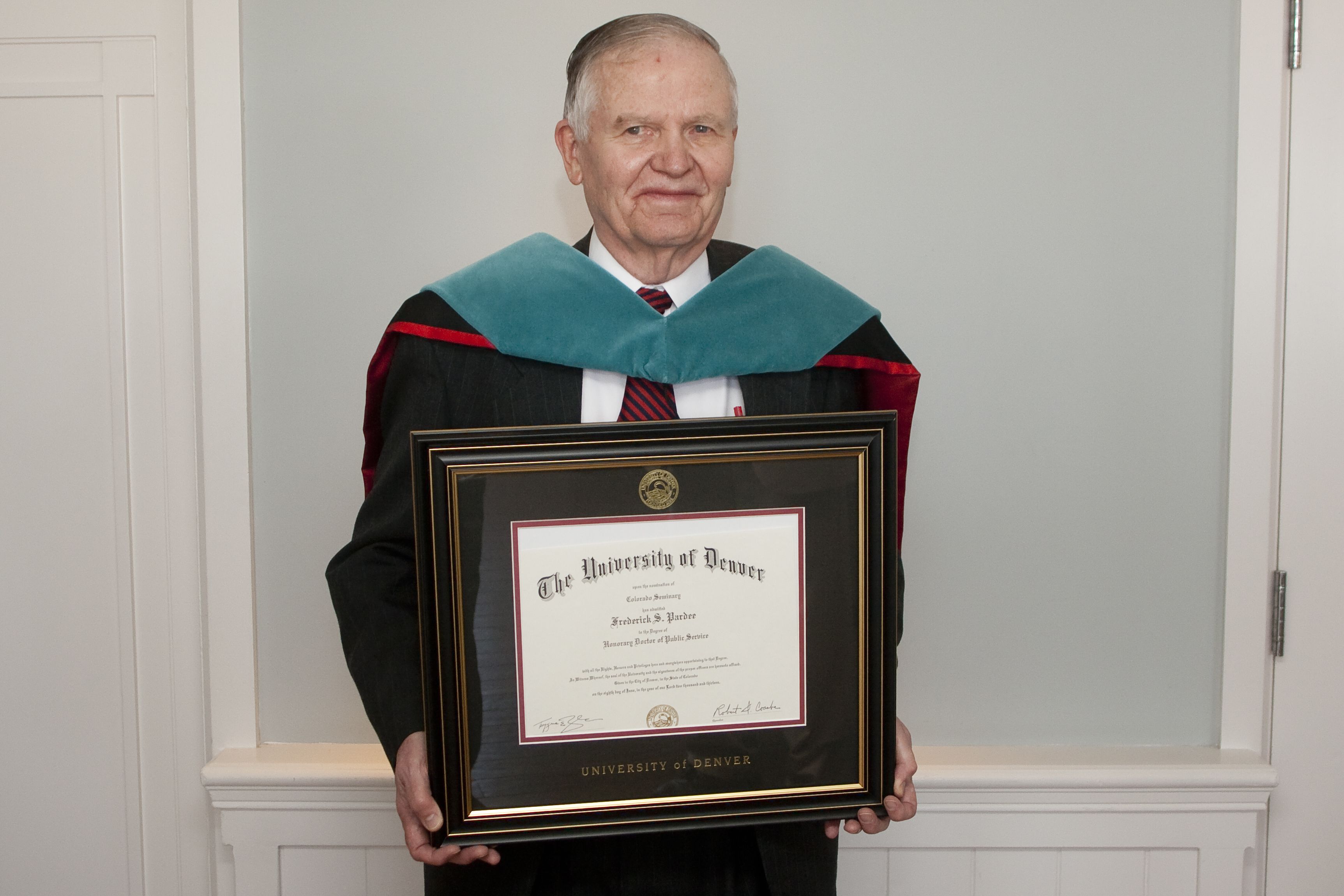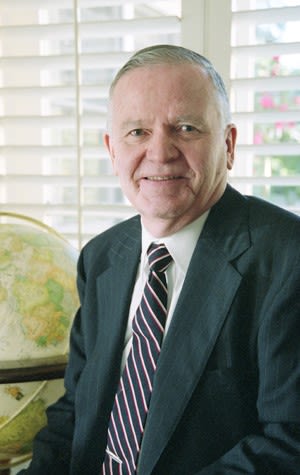Recent estate bequest brings Pardee DU giving to $24.5 million
Pardee Institute’s leading quantitative model provides insight to improve the human condition

Frederick Pardee
Frederick Pardee
Frederick Pardee’s visionary generosity – during his lifetime and most recently through an estate gift that brought his total giving to just under $25 million – led to the creation of the Pardee Institute at DU’s Josef Korbel School of International Studies and the establishment of the leading quantitative model for thinking strategically about global systems.
Growing up in the turbulent World War II era and receiving scholarships in college fueled his dual mission in life: to act philanthropically and to improve the world.
In addition to working in quantitative modeling and economic analysis, Pardee’s early career also involved real estate investing. With that venture’s success, he founded a privately held investment and development firm, creating financial gains that allowed him to pursue his interest in advancing the human condition through systems and data and to become an active philanthropist.
Around the same time, Barry Hughes was conducting similar work. Hughes developed the International Futures model, which combines interconnected models across multiple domains and leverages historical data over 5,000 historical series, identifies and measures trends, and models dynamic relationships to analyze and forecast hundreds of variables for 188 countries from 1960 up to the year 2100. Its outputs maximize planners’ and policy makers’ ability to simulate how changes in one system lead to changes across all others and explore how countries and regions have developed in the past, how they might grow and change in the future, and even hypothesize possible futures based on policy choices.
Following Hughes’ move to DU to teach at the Korbel School, he and Fred Pardee established a connection based not only on their professional interest in quantitative modeling but, more fundamentally, a shared vision of improving the human condition.
In 2007, Fred Pardee provided the support that allowed the University of Denver’s Korbel School to establish the Frederick S. Pardee Center for International Futures. The objective of the Center’s – now Institute’s – work was hosting and further developing Hughes’ International Futures (IFs) model, by then the world's leading forecasting system for the study of the human condition. Two years later, Pardee helped fund the building of an annex to Ben Cherrington Hall to house the growing Institute team with additional workspace, video-conferencing resources, and presentation capability. Fred Pardee’s contributions to the visioning and understanding of ways to improve the global human condition led the University of Denver to award him with an honorary Ph.D. in 2013.
The philanthropic contributions of Fred Pardee, as well as his hands-on participation in past projects, played a vital role in the advancement of Barry Hughes’ International Futures model and made Korbel’s Pardee Institute possible.
Around the same time, Barry Hughes was conducting similar work. Hughes developed the International Futures model, which combines interconnected models across multiple domains and leverages historical data over 5,000 historical series, identifies and measures trends, and models dynamic relationships to analyze and forecast hundreds of variables for 188 countries from 1960 up to the year 2100. Its outputs maximize planners’ and policy makers’ ability to simulate how changes in one system lead to changes across all others and explore how countries and regions have developed in the past, how they might grow and change in the future, and even hypothesize possible futures based on policy choices.
Following Hughes’ move to DU to teach at the Korbel School, he and Fred Pardee established a connection based not only on their professional interest in quantitative modeling but, more fundamentally, a shared vision of improving the human condition.
In 2007, Fred Pardee provided the support that allowed the University of Denver’s Korbel School to establish the Frederick S. Pardee Center for International Futures. The objective of the Center’s – now Institute’s – work was hosting and further developing Hughes’ International Futures (IFs) model, by then the world's leading forecasting system for the study of the human condition. Two years later, Pardee helped fund the building of an annex to Ben Cherrington Hall to house the growing Institute team with additional workspace, video-conferencing resources, and presentation capability. Fred Pardee’s contributions to the visioning and understanding of ways to improve the global human condition led the University of Denver to award him with an honorary Ph.D. in 2013.

Frederick Pardee
Frederick Pardee
The philanthropic contributions of Fred Pardee, as well as his hands-on participation in past projects, played a vital role in the advancement of Barry Hughes’ International Futures model and made Korbel’s Pardee Institute possible.
“Over 20 years Fred Pardee and I developed a relationship combining friendship and working partnership. His strong and frequently communicated interest was always in ‘improving the human condition,’ an interest that financially and intellectually supported the creation and work of what has now become the Frederick S. Pardee Institute for International Futures. I very much miss the opportunities of further interacting with Fred.”
